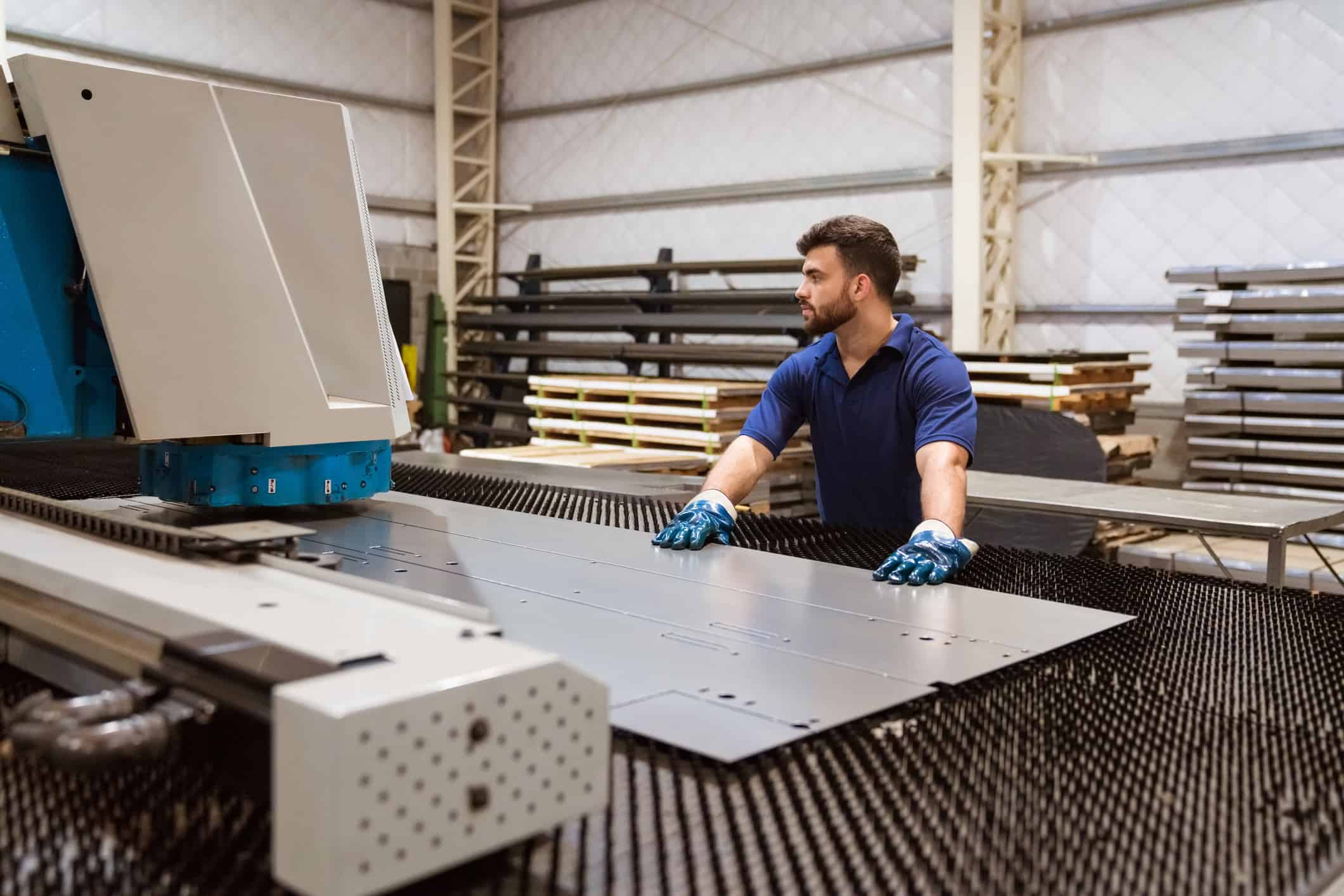12 Tips for Growing Your CNC Machining Business

Starting your own CNC machining business can be challenging; however, if you take all the steps necessary for success during the startup phase–including establishing professional partnerships and creating a company website–you’ve set yourself up to begin growing and establishing a solid new enterprise.
As a small business, you have an inherent advantage over many of your large, well-established competitors. You are approaching your machining business with a fresh vision, and you have the flexibility to adjust to changing business trends and technologies. With little overhead or payroll to manage in the beginning, you can also charge less for your services and save up to finance future growth.
Entering a manufacturing market dominated by experienced CNC shops that have already cemented their reputations from years of doing quality work and meeting deadlines can be understandably intimidating. You must have a plan to get where they are (and eventually surpass them).
Growing a successful machine shop requires time, patience, and persistence, whether you’re starting from scratch or hoping to expand an existing business.
Follow these twelve tips, and show up, to ensure your CNC shop’s growth and success.

1. Use Your Existing Network
Are you more likely to do business with a stranger or with someone who was recommended to you by a trusted friend or colleague? The answer is obvious, and that’s why you need to use established relationships from your network to help you jumpstart your fledgling CNC machining business.
If you haven’t already done so, start building a network by attending industry events or webinars. Reconnect with your existing friendships in person or on social media. The more connections you make or re-establish, the better chance you have for one of them steering customers and CNC work in your direction.
2. Find Your Niche
While you could operate as a CNC shop offering general machining, it’s possible to cut down on the competition by specializing in one area; for example, you could advertise expertise in metal patternmaking and use your CNC equipment to produce long-running cast iron and tool steel patterns for automated foundries. As another option, you could focus on machining the foundry’s castings. In that case, your niche would be high-volume machining, which is ideal for CNC milling machines and lathes.
Your niche can take up only some of your available machine time, and you can still take on small-volume projects and reserving a portion of your business to serve as a jobbing shop. The more time and effort you devote to your specialty, the better you’ll become at it–and the sooner you’ll see substantial growth.
3. You Might Need to Diversify in the Early Stages of Growth
Although your ultimate goal might be to find your niche, keeping your CNC machine tools running during those first critical months will be your priority. We aren’t recommending that you should book unprofitable work to stay busy, but adding some extra jobs within your shop’s capabilities will help you build your reputation and, more importantly, assist in building necessary cash flow.
4. Learn Your Market
It pays off to research the market diligently. Your market determines profits which, in turn, affects the net worth of your business. Notice the shifting demand patterns, and develop ways to increase your output to meet them. The result is more significant profits to finance ongoing growth.
5. Don’t Be in a Hurry to Expand
Business growth is a gradual process with some painfully slow stages. During these stages, however, owners learn many lessons that will serve them well in future growth stages. It’s typically better to resist the temptation expand right away. Stick to the slow, steady growth that your company can adapt to and maintain.
There will be a time for enlarging the facility or purchasing expensive new CNC equipment, but stepping into those moves too quickly can have the opposite effect and instead slow down your company’s long-term growth.
6. Integrate Your Operations
Small CNC machining businesses might need the means for vertical or horizontal integration, but they bring as much work in-house as possible. Most shops can revolve their production schedule around their existing capabilities and prioritize work on their machining centers–rather than sending work to a third-party supplier and being at the mercy of their production schedule and pricing.
7. Let Your Competition Motivate You
Be aware of your primary competitors, and understand them. Knowing the competition allows you to keep up with them and ensures you stay afloat in those fragile early months or years in business. Keeping a close eye on your competitors will act as a motivating factor in growing your enterprise.
8. Embrace Technology
The fact that you started a CNC machining company indicates your comfort level with technology. Manufacturing technology is evolving at a breakneck pace though, with innovations flowing in steadily. Always assume your main competitor is keeping up with the latest and greatest to gain the upper hand.
Keeping up with technology might not require buying an expensive machine tool; it could also mean updating your software to newer versions or improving your equipment to meet your client’s demands.
Technical innovations can be costly when you consider the upfront cost of the machine, training, and initial set-up. New CNC machinery will boost your production capacity though, as well as improving cycle times, and contributing to the company’s long-term growth.
9. Grow Your Business with Digital Marketing
You can’t grow your business by keeping it a secret, so employ digital marketing like emails, social networking, and videos. Build your manufacturing brand and establish stronger connections with customers and potential buyers. Digital marketing is the key to increasing website traffic and attracting new clients.
10. Focus on Scalable Growth
Growing your CNC machining business also means coping with higher demand and a heavier workload. Managing your company will require flexibility and a focus on the labor and finances to help you through your current stage of development.
Scalable growth can occur when your business finds new ways to grow with existing customers. As an example, the CNC shop mentioned earlier produced metal patterns for foundries to cast plumbing fixtures such as elbows and tees. Those fixtures will require machining, and you have the necessary CNC equipment sitting on your shop floor. Accepting additional contracts from existing business relationships is a less expensive, more secure, and scalable way to grow.
11. Stay Open to New Ideas
New business owners must quickly learn to be open-minded to grow. Taking in and assessing ideas is essential to the development of your company, especially in a manufacturing environment where technology permeates nearly every aspect.
Being open to ideas provides you with an edge as you grow, and it fits well with the risk-taking nature of most entrepreneurs, who embrace any concept relevant to their growth goal. You can look for these ideas by attending seminars and conferences or scrolling through journals and publications.
12. Register Your Shop on the MFG Platform
What is MFG? It’s a marketplace where buyers of custom parts can easily find manufacturers. At the same time, registering your company profile on MFG exposes your CNC shop to thousands of purchasing agents and buyers, providing valuable exposure to major search engines.
Your shop’s growth depends on finding new customers. MFG can help by allowing you to conveniently, efficiently, and economically market your CNC machining business to a large online manufacturing buyer audience.

Start Growing
Whether you have recently started a CNC machining business or are a seasoned veteran looking to expand, these recommendations–with a sprinkling of your ideas thrown in–will provide a GPS for growth.
Keep in mind that not all these tips will work for you (after all, every CNC shop is unique), so some trial and error will be part of the process. However, most of these hints–developing relationships, learning your market, and embracing technology–are universal recommendations that will apply to every CNC shop hoping to grow.




